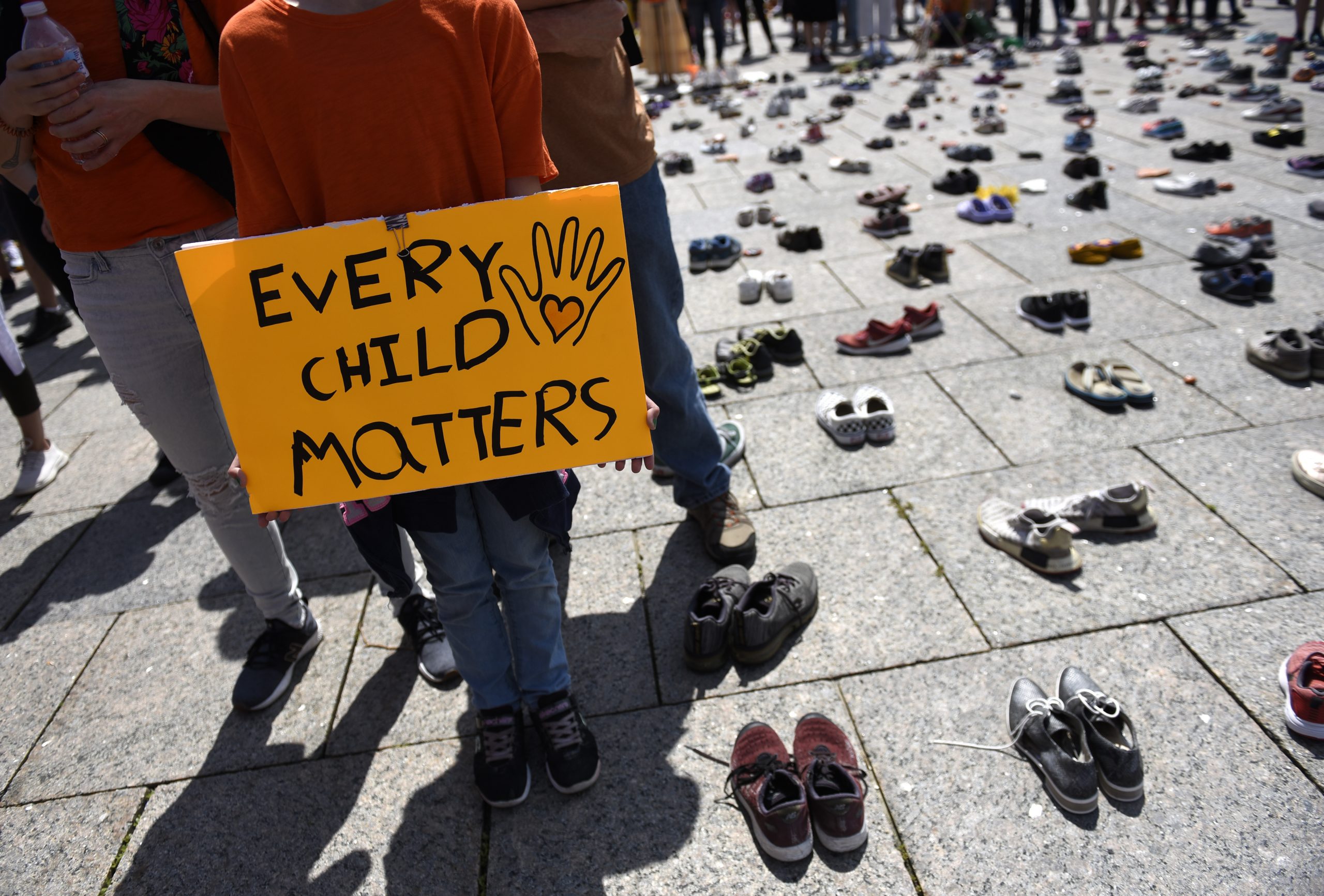Alberta labour union takes fight against Critical Infrastructure Defence Act to the Supreme Court of Canada
Paula Tran - Yesterday
Alberta's largest public sector union is taking its constitutional challenge against the UCP government's Bill 1 to the Supreme Court of Canada.
The Alberta Union of Provincial Employees (AUPE) said Bill 1, or the Critical Infrastructure Defence Act, violates the rights of Albertans and is an attack on the freedom to take part in peaceful protests.
The union is seeking leave to have the Supreme Court hear an application to overturn a decision made by the Alberta Court of Appeal last December, after the appeal court ruled that AUPE had no standing to bring the claim because no one had yet been charged under the Act.
Read more:
Advanced education minister expects Alberta post-secondary institutions to drop vaccine and mask mandates
The union argues the Alberta Court of Appeal based its decision on hypotheticals, even though AUPE and its members were experiencing a "current chilling effect" from the bill's prohibitions.
"AUPE believes that peaceful protesting is a cornerstone of our democracy and that the aim of the government is to use the Critical Infrastructure Defence Act to silence opposition to its policies," said Patrick Nugent, AUPE's counsel, in an emailed statement on Friday.
Paula Tran - Yesterday
Alberta's largest public sector union is taking its constitutional challenge against the UCP government's Bill 1 to the Supreme Court of Canada.
The Alberta Union of Provincial Employees (AUPE) said Bill 1, or the Critical Infrastructure Defence Act, violates the rights of Albertans and is an attack on the freedom to take part in peaceful protests.
The union is seeking leave to have the Supreme Court hear an application to overturn a decision made by the Alberta Court of Appeal last December, after the appeal court ruled that AUPE had no standing to bring the claim because no one had yet been charged under the Act.
Read more:
Advanced education minister expects Alberta post-secondary institutions to drop vaccine and mask mandates
The union argues the Alberta Court of Appeal based its decision on hypotheticals, even though AUPE and its members were experiencing a "current chilling effect" from the bill's prohibitions.
"AUPE believes that peaceful protesting is a cornerstone of our democracy and that the aim of the government is to use the Critical Infrastructure Defence Act to silence opposition to its policies," said Patrick Nugent, AUPE's counsel, in an emailed statement on Friday.
AUPE first launched its constitutional challenge against Bill 1 in June 2020, after the bill passed third reading the month prior. The bill was passed in response to the rail and road blockades that were organized in solidarity with the Wet'suwet'en hereditary chiefs protesting the construction of the Coastal Gas Link natural gas pipeline in northern B.C.
Read more:
Comparing Coutts border protest to Indigenous land defenders inaccurate, says Alberta premier
The bill allows law enforcement to arrest and fine anyone trying to shut down critical economic infrastructure, including railways and highways. It also makes it easier for police to intervene at blockades rather than wait for a court injunction.
But questions arose about the fact that the bill has not been used until Monday, 10 days after protestors arrived in Coutts.
Video: Alberta border blockade remains adamant, demands nationwide mandates lifted
Alberta RCMP has laid charges under the Critical Infrastructure Defence Act against Calgary street preacher Artur Pawlowski, who is being accused of obstructing and interfering with essential infrastructure.
Pawlowski was arrested at his residence by Alberta RCMP and Calgary Police Service officers on Monday. A video of his arrest showed him being handcuffed and taken away by police. Multiple people can also be seen yelling at the police and filming the incident.
Read more:
Alberta NDP calls on UCP to suspend commercial operators licences as Coutts protest enters 13th day
He has been taken before a justice of peace and remains in custody until his next court appearance on Feb. 16, said an RCMP spokesperson.
The AUPE criticized the UCP government's response to the protest, accusing it of only imposing the law against groups they don't like.
“The fact that the government and police waited so long to charge anyone under Bill 1 during the border protests at Coutts and aren’t using the act to shut down the protests entirely suggests that this will be a law that is imposed only on those with whom the government does not agree," said AUPE president Guy Smith.
The Alberta government maintains that the blockades are unlawful and enforcement decisions remain solely in the authority of the police.
Read more:
Manufacturing association says blockades taking big pinch out of Alberta’s economy
"The Alberta government looks forward to defending against these baseless claims. As always, enforcement decisions about statutes such as the Critical Infrastructure Defence Act remain solely in the authority of law enforcement.
"Constitutional rights, such as those of free assembly, have been found by courts to have reasonable limits. The blocking of critical infrastructure is unacceptable, and we believe that the Supreme Court of Canada will agree that the AUPE claim is without merit," said Alex Puddifant, acting Justice Minister Sonya Savage's press secretary.
Alberta loosening COVID-19 restrictions as border protests resume
Earlier this week, Kenney also said comparing police responses at Coutts to police responses to Indigenous land defenders is "inaccurate," calling the situation at Coutts very fluid and complex.
“It is never lawful to block a railway and I’ve seen with much frustration those kinds of blockades go on, sometimes for weeks. I think that is wrong,” he said






















